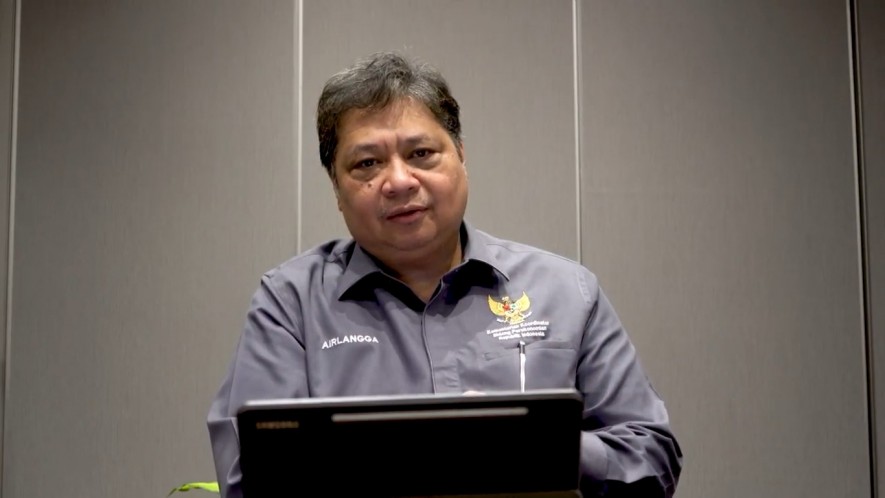Accelerating National Economic Growth, Government Prepares Anticipatory Steps To Become Global Key Player in Commodity-Based Downstream Industry
Nata Kesuma
Senin, 06 Februari 2023 - 14:00 WIB

Thepresidentpost.id - Optimism to avoid a recession and promote a faster economic recovery has resurfaced in view of the latest developments in global economic conditions.
A number of global economic indicators are not expected to put further pressure on global economic growth, the IMF has even revised its 2023 global economic growth projection to 2.9% from the previous level of 2.7%.
Observing this, the Government remains anticipatory and prepares various policies to encourage national economic growth. A number of sectors will be strengthened and are expected to become a source of economic growth in 2023, one of which is the industrial sector.
"Referring to BPS data, the manufacturing sector contributed the most to GDP and in the third quarter of 2022 it reached 16.1%. The Industrial Confidence Index at the Ministry of Industry is 51.54 while the PMI has released 51.3 in January 2023," said the Coordinating Minister for the Economy Airlangga Hartarto virtually in the 2023 Economic & Business Outlook Webinar organized by Warta Ekonomi, Friday (3/ 02).
In the short term, to strengthen domestic consumption which is expected to boost demand from the industrial sector by encouraging the use of domestic products. For the medium to long term, the Government will continue economic transformation to increase competitiveness, increase investment, boost HR productivity, and absorb labor through the implementation of the Job Creation Law.
As one of the countries in the world with high natural resource potential, the Government is also determined to become a Global Key Player in the commodity-based downstream industry. The government is focusing the commodity downstream industry into 3 groups, namely agro-based industries such as the oleochemical industry, mineral mining materials-based industries such as the mineral and metal smelter industry, and oil and gas and coal-based industries such as the coal to methanol project .
“The government also continues to encourage the potential of natural resources. For example, Indonesia has the largest reserves of nickel in the world and the President's directives are to continue to reduce exports of raw materials and continue to increase downstream production," said the Coordinating Minister for Airlangga.
The government is also actively promoting the downstreaming of superior mineral and metal-based commodities such as bauxite, tin and nickel. Refining and processing bauxite into aluminum end products is targeted to increase national income from IDR 21 trillion to IDR 62 trillion.
Downstreaming tin is also expected to produce rare earth metals which are critical components of today's modern technologies. For the nickel sector, after the initial downstream phase was successful with the growth of pyrometallurgical smelters producing ferronickel and stainless steel, now the second phase is being carried out by making Indonesia a center for electric vehicle battery production .
"Downstream efforts will certainly continue to be encouraged to add added value to the industry. The government also provides a number of things such as providing industrial infrastructure, creating a conducive industrial business environment, issuing fiscal incentives, of course also encouraging human resources to keep up with technological developments," concluded the Coordinating Minister for Airlangga.
Baca Juga
- 9 Reasons to Invest in Kota Jababeka with Profit Potential
- President Prabowo Attends D-8 Summit in Egypt
- Gov’t to Continue Disbursing Rice Assistance
- President Jokowi Inaugurates Soedirman National Defense Central Hospital
- After Putin, It's Now the Turn of British and Dutch PMs to congratulate Prabowo
Berita Lainnya
Business 24/12/2024 10:12 WIB
PT VOK Electrical Appliance Indonesia Officially Builds Factory in Kendal Special Economic Zone (KEK)
PT VOK Electrical Appliances Indonesia officially held a groundbreaking ceremony for its new factory in Kendal Special Economic Zone (KEK), Central Java. The deputy government of Kendal Regency, Head…
Economy 24/12/2024 08:15 WIB
PT Matahari Tire Indonesia, China's No. 1 Tire Manufacturing Company Officially Operates in Kendal SEZ
PT Matahari Tire Indonesia, a subsidiary of Zhongce Rubber Group Co Ltd (ZC Rubber) from China has officially started the operation of its new factory in Kendal Special Economic Zone, Central Java. The…
Science & Tech 24/12/2024 07:20 WIB
Minister of Industry Agus Denies Rumors that iPhone 16 Can be Bought on Pre-order
Minister of Industry Agus Gumiwang Kartasasmita strongly denied rumors that the iPhone 16 could be purchased for pre-order on Friday (20/12/2024). He said he had not received an investment proposal of…
Business 23/12/2024 15:19 WIB
Minister of Trade at the Launch of EPIC Sale
Minister of Trade, Budi Santoso together with Coordinating Minister for Economic Affairs, Airlangga Hartarto and Head of the National Food Agency (Bapanas), Arief Prasetyo Adi launched Every Purchase…
Travel 23/12/2024 15:12 WIB
Launch of Shopping in Indonesia Only (BINA) Discount Program 2024
Coordinating Minister for Economic Affairs, Airlangga Hartarto together with Deputy Minister of Trade, Dyah Roro Esti; Deputy Minister of SMEs, Helvi Moraza; Deputy Minister of Tourism, Ni Luh Puspa;…




Komentar